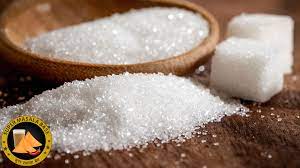You take a sip of coffee or a bite of ice cream and wince in pain because of a short, sharp sensation in your teeth. Or you suddenly find that brushing and flossing are uncomfortable. If this sounds familiar, you could have sensitive teeth.
It is a common problem and surveys have estimated that 1 in 8 people could have teeth sensitivity. Some studies have even found that more than half of all people have some degree of sensitivity in their teeth.
Please continue reading to learn what causes sensitive teeth and the treatment options available to you. We’ll also answer some frequently asked questions about tooth sensitivity.
What causes sensitive teeth?
Sensitive teeth can occur due to various reasons, most commonly due to worn tooth enamel and exposed tooth roots. It happens when the enamel (hard white substance) that protects the crowns (visible parts) of healthy teeth gets worn away, exposing the nerves in the layers below. This makes your teeth hypersensitive to heat and cold as well as sticky, sweet, or acidic foods.
Other things that can cause your teeth to become sensitive include:
- Cavities (tooth decay)
- Worn fillings
- Gum disease
- Receding gums
- Fractured teeth or cracked teeth
- Aggressive tooth brushing
- Dental procedures (this is usually temporary tooth sensitivity and goes away in a few weeks)
How can I stop my teeth being sensitive?
It’s important to go see your dentist if you’re bothered by sensitivity in your teeth. Your dentist can examine your teeth and identify the cause of your sensitivity. This is important because the treatment for sensitive teeth often depends on the underlying cause.
The most effective treatment for teeth sensitivity is a root canal procedure. This treatment allows your dentist to save a badly damaged or infected tooth. Root canal involves cleaning the pulp inside the root of the tooth, coating the area with antibiotics, and placing a filling.
Some other options that can provide relief from sensitive teeth include:
- Desensitizing toothpaste can reduce sensitivity in teeth by blocking pain. This requires several applications and will not stop your teeth from being sensitive immediately.
- Fluoride application to areas of sensitivity may help to strengthen the tooth enamel and reduce pain. Prescription fluoride trays are available to accomplish this.
- Your dentist may recommend bonding sensitive tooth surfaces with resin to prevent exposed roots from coming in contact with foods and drinks.
- Grafting a small piece of gum surgically may help people who have sensitive teeth due to loss of gum tissue.
Common Questions About Teeth Sensitivity
Does salt water help sensitive teeth?
Rinsing your mouth with warm salt water several times a day can help relieve mild pain and inflammation from teeth sensitivity.
Should you brush your teeth when they are sensitive?
It’s important to brush your teeth regularly twice a day even if they are sensitive. Failure to keep up with dental hygiene can lead to tooth decay and gum disease, which can make pain from teeth sensitivity worse. Consider using a toothpaste formulated for sensitive teeth and a soft bristled brush. Brush your teeth with gentle circular motions. If this does not bring relief, make an appointment with your dentist so that they can find out what’s going on.
Does teeth sensitivity mean a cavity?
Cavities or tooth decay are a possible cause of tooth sensitivity. However, there can be other causes for sensitive teeth as well. If home remedies do not work and your pain is frequent or severe, it’s best to consult a dentist.
How can you tell the difference between tooth pain and tooth sensitivity?
It can be difficult to tell the difference between tooth sensitivity and tooth pain as both can cause a sharp painful sensation. One way to tell is that tooth sensitivity usually occurs after eating or drinking hot or cold foods and drinks or after eating sweet, acidic, or sticky foods. Tooth pain, on the other hand, can be present around the clock.
How can you prevent teeth sensitivity?
Here are some tips on preventing sensitivity in your teeth:
- Good oral hygiene can help protect your teeth from tooth decay (cavities), which can cause sensitive teeth. Brush your teeth twice a day and floss daily.
- Use a soft bristled toothbrush and brush your teeth with gentle movements. Avoid scrubbing your teeth hard or using abrasive toothpastes.
- Teeth grinding can wear away the enamel and put you at risk of cracked teeth or tooth fractures. If you grind your teeth, talk to your dentist about wearing a mouthguard.
- Consider using a straw to drink wine, citrus juices, carbonated drinks, and other acid drinks to limit contact of these beverages with your teeth.
- Drink some water to balance the pH in your mouth after eating acidic foods.
If you’re suffering from sensitive teeth and want to find a solution, Express Dentist has a trusted network of experienced dental professionals across the country. We can connect you with an experienced dentist for teeth sensitivity treatment and routine dental care. Get in touch with Express Dentist today and say goodbye to sensitive teeth.
About the author

Dr. Greg Grillo
Dr. Greg Grillo DDS studied at the University of Washington where he received a bachelors degree with Honors and later attended dental school on the same campus. Following school Dr. Greg served in the United States Navy as a dental officer. During this time he received advanced training in specialty areas of dentistry while also treating families of members of the military.
As well as sharing valuable information on dentistry and oral health, Dr. Greg remains a practicing dentist to this day. He works with families in the Okanogan Valley where he lives with his wife and three children.
- Dr. Greg Grillo
- Dr. Greg Grillo
- Dr. Greg Grillo
- Dr. Greg Grillo
- Dr. Greg Grillo
- Dr. Greg Grillo
- Dr. Greg Grillo
- Dr. Greg Grillo
- Dr. Greg Grillo
- Dr. Greg Grillo
- Dr. Greg Grillo
- Dr. Greg Grillo
- Dr. Greg Grillo
- Dr. Greg Grillo
- Dr. Greg Grillo
- Dr. Greg Grillo
- Dr. Greg Grillo
- Dr. Greg Grillo
- Dr. Greg Grillo
- Dr. Greg Grillo
- Dr. Greg Grillo
- Dr. Greg Grillo
- Dr. Greg Grillo
- Dr. Greg Grillo
- Dr. Greg Grillo
- Dr. Greg Grillo
- Dr. Greg Grillo
- Dr. Greg Grillo
- Dr. Greg Grillo
- Dr. Greg Grillo
- Dr. Greg Grillo
- Dr. Greg Grillo
- Dr. Greg Grillo
- Dr. Greg Grillo
- Dr. Greg Grillo
- Dr. Greg Grillo
- Dr. Greg Grillo
- Dr. Greg Grillo
- Dr. Greg Grillo
- Dr. Greg Grillo
- Dr. Greg Grillo
- Dr. Greg Grillo
- Dr. Greg Grillo
- Dr. Greg Grillo
- Dr. Greg Grillo
- Dr. Greg Grillo
- Dr. Greg Grillo
- Dr. Greg Grillo
- Dr. Greg Grillo
- Dr. Greg Grillo
- Dr. Greg Grillo
- Dr. Greg Grillo
- Dr. Greg Grillo
- Dr. Greg Grillo
- Dr. Greg Grillo
- Dr. Greg Grillo
- Dr. Greg Grillo
- Dr. Greg Grillo
- Dr. Greg Grillo
- Dr. Greg Grillo
- Dr. Greg Grillo
- Dr. Greg Grillo
- Dr. Greg Grillo
- Dr. Greg Grillo
- Dr. Greg Grillo
- Dr. Greg Grillo
- Dr. Greg Grillo
- Dr. Greg Grillo
- Dr. Greg Grillo
- Dr. Greg Grillo
- Dr. Greg Grillo
- Dr. Greg Grillo
- Dr. Greg Grillo
- Dr. Greg Grillo
- Dr. Greg Grillo
- Dr. Greg Grillo
- Dr. Greg Grillo
- Dr. Greg Grillo
- Dr. Greg Grillo
- Dr. Greg Grillo
- Dr. Greg Grillo
- Dr. Greg Grillo
- Dr. Greg Grillo
- Dr. Greg Grillo
- Dr. Greg Grillo
- Dr. Greg Grillo
- Dr. Greg Grillo
- Dr. Greg Grillo
- Dr. Greg Grillo
- Dr. Greg Grillo
- Dr. Greg Grillo




